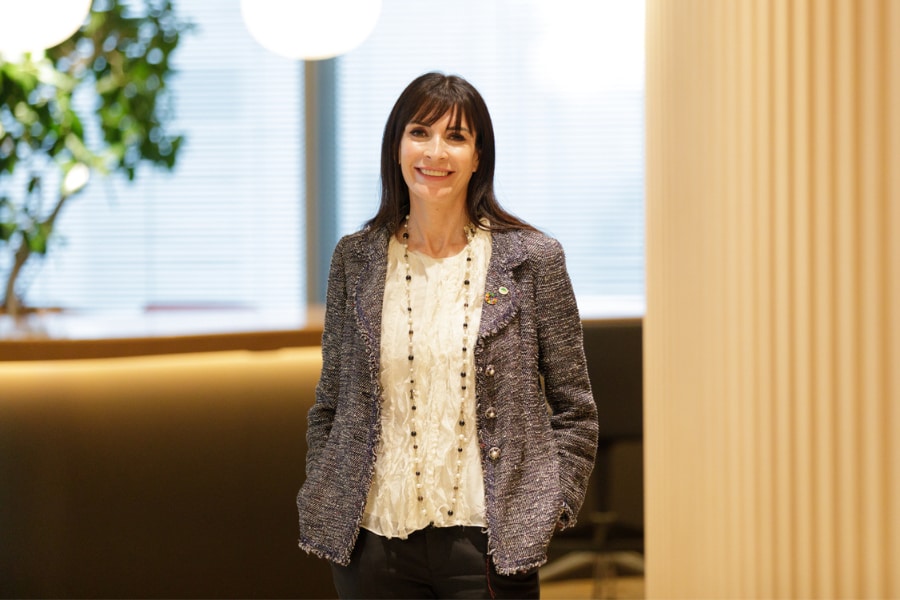Digital Twin: What Does This Mean and How is Hitachi Using This Technology?
87-year-old App Developer on Creating an Age-inclusive Workplace
Ms. Masako Wakamiya is still active at 87. She developed a smartphone app after she turned 80 years of age, she creates Excel art, and she gives lectures around the world. And she also caught the attention of the CEO of Apple Inc. and Taiwan's Minister of Digital Affairs — so much so that they said that they wanted to meet her.
At a time when people are regularly living until 100 years of age in Japan, there is a need to create inclusive workplaces where all people, regardless of age, can work in harmony. This interview with Ms. Wakamiya looks at creating an environment where people of all ages can work together in harmony.
Developing an app at the age of 81
-- Firstly, please introduce yourself.
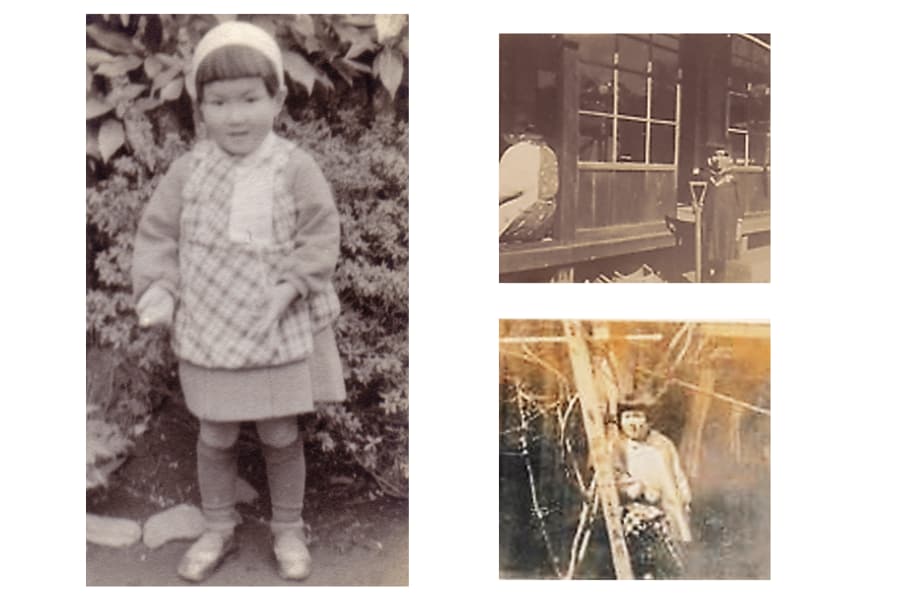
Ms. Wakamiya: I now live in Fujisawa City, Kanagawa Prefecture, Japan, but I was born in Tokyo in April 1935, before Japan entered the war. I still have a picture of myself in the first grade of elementary school building an air-raid shelter in my yard.
After the war ended and I graduated from high school, I went to work for a bank. The year was 1954. My right hand’s been disabled a bit since birth, and I had trouble using an abacus and counting bills, but before long, the bank started using electronic calculators and bill-counting machines, which made my life much easier.
When I retired, I thought I would be able to enjoy a leisurely life, but those thoughts were erased when I had to start taking care of my mother. I was cooped up in the house all day, as I was unable to come and go freely; but it was a computer that gave me the encouragement that I needed. In the mid-1990s, only enthusiasts and "nerds" bought computers, and unlike today, there were no basic introductory books or classes, so I had a hard time learning how to use a computer, but I slowly figured out how to use it by asking people who were well-versed in using computers.
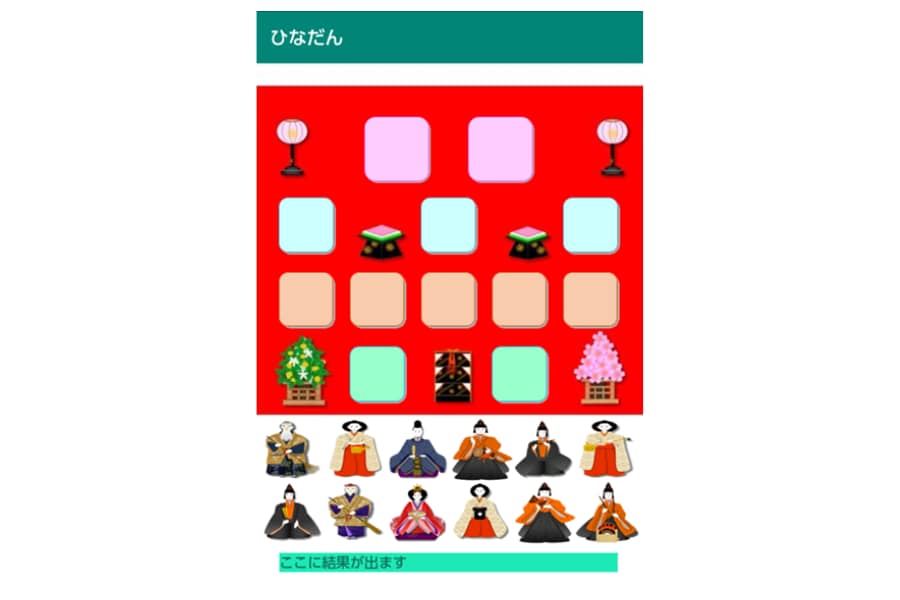
-- Why did you develop the “hinadan” smartphone app when you were 81 years old?
Ms. Wakamiya: Smartphones have become popular, and not only are they extremely difficult for the elderly to use, there were no apps available for us “oldies” to enjoy.
So, with the help of some young people who are good at developing apps, I somehow created a game app for the elderly called "hinadan," which was released in 2016. Even though it’s an app where you just have to correctly arrange the dolls on a hinadan, which is a multi-tiered doll stand, a major overseas media outlet wrote an article about it.
Then one day, I received an email from Apple's headquarters in the U.S. stating that their CEO wanted to meet me. This led me to attend Apple's Worldwide Developers Conference in the U.S. in 2017, where I met with Apple’s CEO, Tim Cook, and told him how difficult the current computer screens are for us older people to use. He said, "Okay, I'll take care of it" and even gave me a big hug.
Every day: An adventure of going place to place
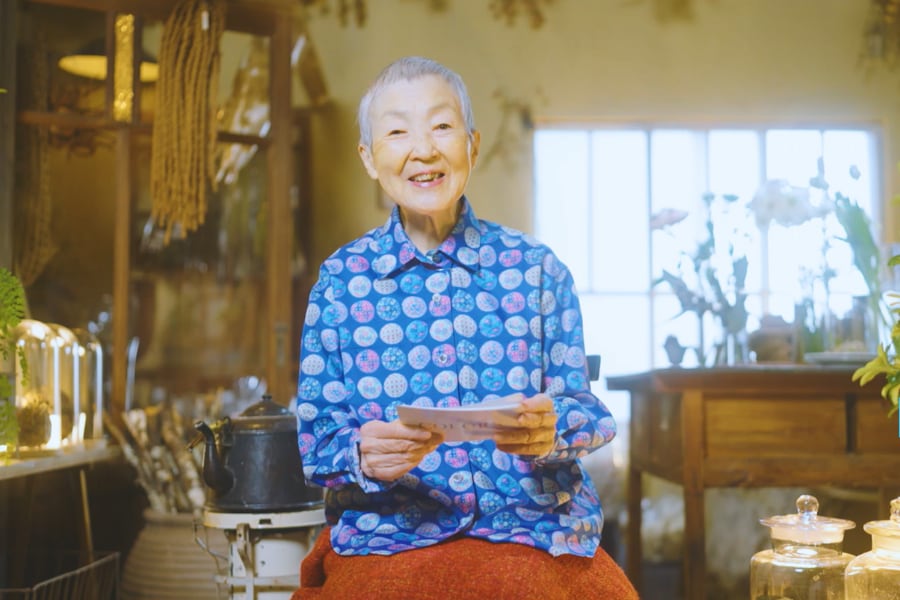
-- What are your main activities these days?
Ms. Wakamiya: I am a board member of the "Mellow Club," which is a social networking website for seniors, and a member of the "Council for the Realization of the Vision for a Digital Garden City Nation," organized by Prime Minister Fumio Kishida.
I also create "Excel art," which involves drawing pictures by filling in Excel cells, and I now use Excel to design patterns for clothing and other things. When I had a conversation with Ms. Audrey Tang, Taiwan's minister of Digital Affairs, she praised my work, saying that it is very rare to find this sort of open-source digital art anywhere in the world.
I also lecture and do all sorts of other things. I bounce around from place to place every day and rarely see the same place or the same people twice. Every day is an adventure.

-- Have you ever noticed any inconvenience or unfairness due to age?
Ms. Wakamiya: Of course. The only inconvenience is that during interviews and at other times, I have to use my hearing aid to hear the questions. My eyesight has also gone downhill, so I can't see the small screen on my smartphone very well.
However, these kinds of age-related handicaps can be overcome by the power of technology. AI speakers, for example, are very useful, aren't they? They can be used to search the internet, turn off the lights, and do many other things for you even when your hands are full.
I have friends in the Mellow Club that do programming, and some of them have trouble seeing the small letters and colors in the code. I hope that more consideration will be given to the accessibility of digital tools, as developers will also age in the future.
Active elderly people: Energizing the youth
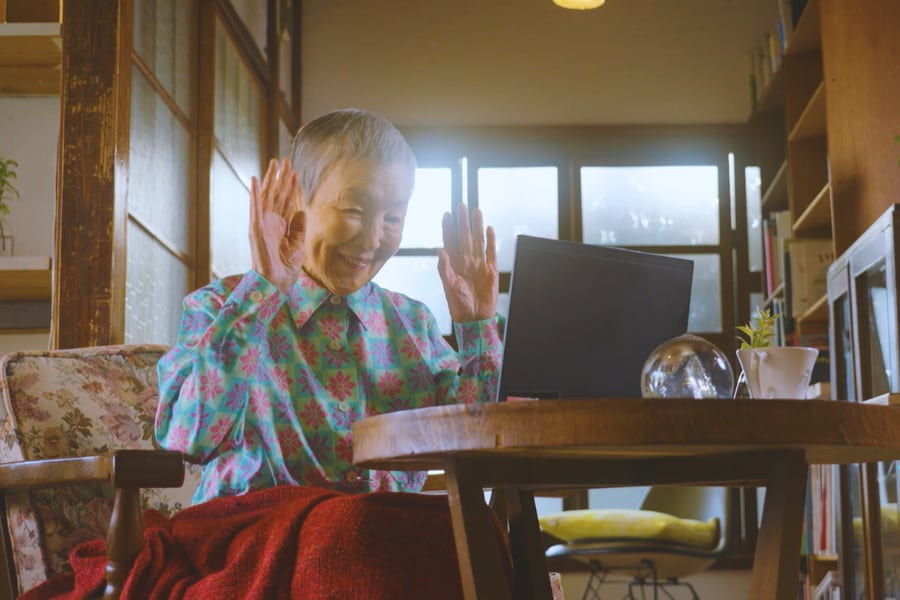
-- How can we create a workplace where people of all ages can work comfortably together?
Ms. Wakamiya: I think we have more and more occasions to work with the elderly and people from other countries, but we are all the same, and we have things in common, such as feeling cold in winter or thinking about our own families.
Based on those common traits, we can also understand other people's differences and work together. I think it is important to share what we have in common, while at the same time understanding and accepting what we don't have in common.
Another important thing is to tell other people how you feel. That is to say, if you have lived together with another person or people for a long time, you can guess how they feel, but if not, you should say what you need to say.
You shouldn’t be afraid to say something like, "Sorry, I don’t like the cold and would prefer to stay inside if you don’t mind." And the people around you should accept that where possible. I think that is what is needed.
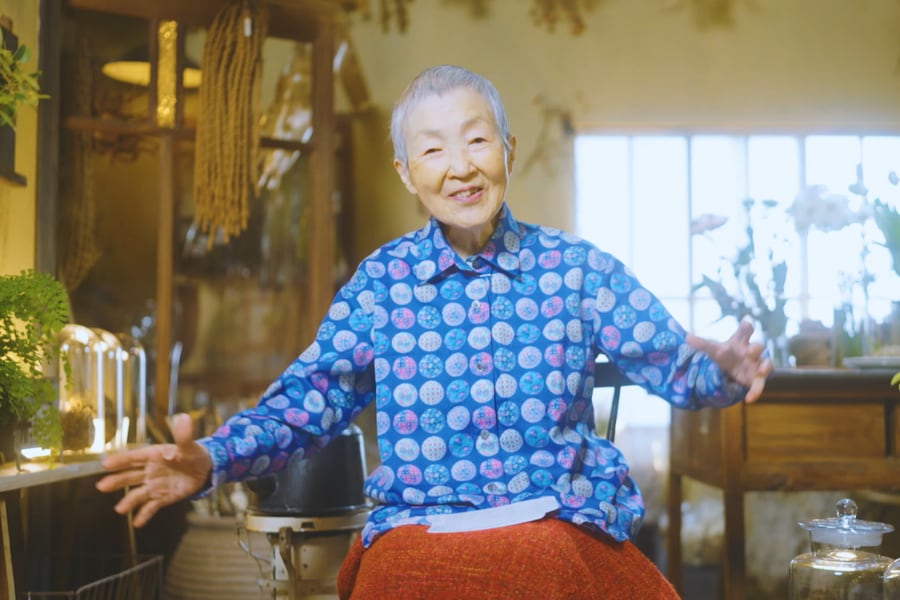
--What benefits do you think there are for society if an environment is created in which people of all ages, from the young to the elderly, can play an active role?
Ms. Wakamiya: The first is to pass on skills. For example, I hear that the number of carpenters who can build houses from scratch and repair them is decreasing these days. If skilled carpenters and young carpenters work in pairs, young people can record the work of skilled carpenters and share what they’ve learned with others. If older people with skills and knowledge step forward and work more and more, I believe that skills will be passed on to younger people.
Above all, young people will be energized when older people are active. Many people in their prime working years attend my lectures, and they are worried about what will happen when they get old. Their heads are full of concerns, and they wonder what life will be like when they grow old. And if they would be bedridden and thus cause their families problems, they don't want to grow old and would prefer to die young. But when they see someone like me, who at 87 is still traveling around the world and working vigorously, they feel relieved. It makes them think that before worrying about getting old, they should work harder and be more energetic in the here and now.
For this reason, I hope that the elderly people of the world do not say "I'm too old" but that they rather take on new challenges without fear of failure. It will not inconvenience anyone if they fail, and even if they do fail, they will still have the experience of looking into a new world. There are many things you can learn from failure. Failure is fertilizer to help a big flower bloom. In the past, people’s lifespan was 50 years, but now it is said that one’s lifespan can be 100 years, so I would like people to ignore their age and live freely.

